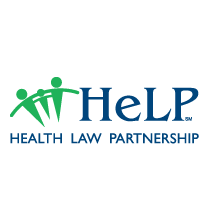HeLP Clinic students win benefits for a disabled child
February 6, 2012
ATLANTA - The HeLP Legal Services Clinic, a part of the Health Law Partnership (HeLP) which is a community collaboration that provides legal services to low-income children and families, continued its great work advocating for its clients in the fall 2011 semester. Fifteen law students were enrolled, as well as graduate students in public health and social work, and numerous medical students who were taking the Clinic as an elective rotation in their 4th year at Morehouse School of Medicine.
Law students enrolled in the HeLP Clinic get the opportunity to develop practical lawyering skills in a variety of substantive legal fields, such as administrative law, wills, education law, and health law. Three teams of law students represented clients in administrative hearings during the semester. Two teams are awaiting the judge’s decision, and one team received a favorable decision granting the client much-needed monetary benefits.
The HeLP Clinic had accepted the favorably-decided case during the 2011 summer, while the client was waiting for a hearing from the Social Security Administration (SSA) on her application for Supplemental Security Income (SSI) benefits for her disabled daughter. SSI is a needs-based assistance program for the aged, blind, and permanently disabled. The girl’s mother had first applied for benefits for her daughter in January 2010. The SSA had denied her application twice before she came to the HeLP Clinic.
"When we were first assigned the case, it was in the research and investigation phase," said Meredith Linscott (pictured right in photo), "so we were not even sure that the girl’s impairments warranted benefits."
Linscott picked up the case in the fall 2011 semester and worked on it with Megan Daugherty (pictured left in photo). "It was only after several meetings with the girl’s mother, a thorough review of the girl’s voluminous medical and education records, and consultation with medical professionals, that we were convinced her disabilities were severe and qualified her for benefits," Daugherty said.
The client initially had applied for benefits based on the girl’s attention-deficit-hyperactivity disorder (ADHD). With the help of a Morehouse School of Medicine student, Linscott and Daugherty, both third-year law students, identified a number of other impairments under which the girl could qualify. They submitted additional evidence and a written brief detailing everything to the administrative law judge (ALJ) prior to the hearing.
"We were confident that our client’s condition satisfied the SSA requirements for ADHD and these other impairments," Linscott said. "We were hopeful that the ALJ would read our brief and agree."
Based on medical expert testimony and the evidence presented at the hearing, the ALJ was so convinced that benefits were due, he made his decision on the spot.
"Usually the ALJ hears the testimony, takes it and the evidence under consideration, and issues an opinion-sometimes several weeks or more after the hearing," said HeLP Clinical Supervising Attorney Emily Suski. "The students made such a strong presentation in this case that the ALJ made his favorable ruling from the bench."
The client was thrilled to find out that she will receive retroactive payments from the time she first applied, nearly two years earlier, in addition to ongoing monthly benefits for her daughter.
"Throughout the semester, we learned many valuable lessons about lawyering and working with clients," said Daugherty. "The highlight was seeing the client’s joy and relief at receiving benefits, which was a result of all of our hard work."
~ Center for Law, Health & Society
Contact:
Wendy Cromwell
Director of Communications
404.413.9050